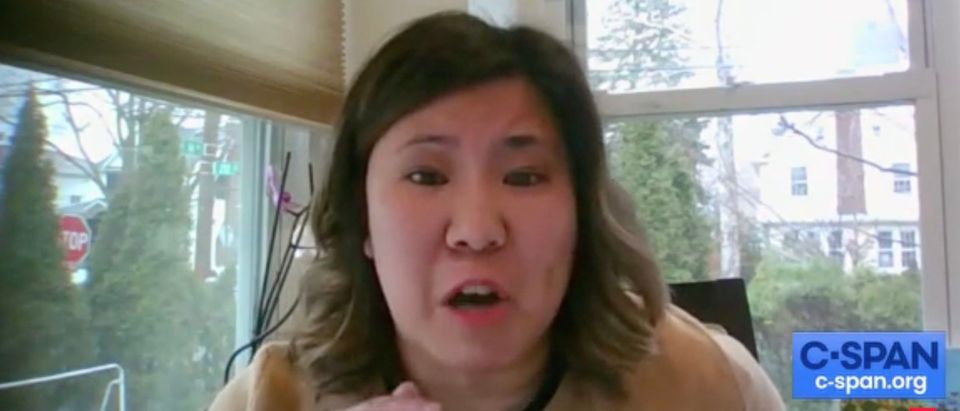Democratic New York Rep. Grace Meng gave a tearful rebuke of Republican Texas Rep. Chip Roy during a Thursday House Judiciary Subcommittee hearing on violence against Asian Americans.
After finishing her remarks, Meng used the remainder of her allotted time to criticize Roy for putting “a bullseye on the back of Asian Americans” during his hearing remarks. Roy had used his allotted time to go after the “policing” of the “free speech” he uses to criticize China and the Chinese Communist Party (CCP), rather than talking about specific violence against Asian Americans. (RELATED: Rep. Chip Roy: Liz Cheney ‘Forfeited Her Right’ To Remain In House Leadership After ‘Unfortunate’ Remarks)
“I want to go back to something that Mr. Roy said earlier. Your president, and your party, and your colleagues can talk about issues with any other country that you want, but you don’t have to do it by putting a bullseye on the back of Asian Americans across this country, on our grandparents, on our kids,” Meng said with growing emotion.
“This hearing was to address the hurt and pain of our community, and to find solutions, and we will not let you take our voice away from us,” she concluded tearfully.
During his remarks, Roy railed against the “policing” of free speech by fellow House members who use tragedies, like the shooting in Atlanta, to try and keep people from speaking out against the actions of China. He also said he viewed the CCP as “the bad guys,” and called them “Chi-Coms.”
Watch Roy’s Full Remarks Here:
Since the start of the coronavirus pandemic, violent crimes against Asian Americans have risen by more than 100%. White House press secretary Jen Psaki said Wednesday there is “no question” that former President Donald Trump’s rhetoric surrounding the coronavirus has contributed to the rise. Democrats have been accused of using the violence as “political ammunition” against Republicans, Trump supporters, and “white supremacists,” especially since many of the attacks caught on camera were perpetrated in heavily Democratic cities by non-white people.



